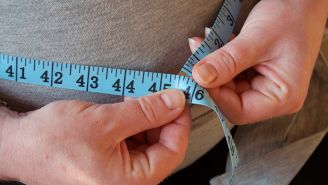Updated on February 3, 2023.
You’ve heard it before: Breakfast is the most important meal of the day. But is it really pivotal for weight loss?
Historically, researchers have found little evidence that eating a morning meal leads to dropping pounds. Nevertheless, dietitians frequently recommend breakfast as part of a plan to lose weight or maintain a healthy weight.
“I think it’s a good idea to always eat breakfast,” says Lauren Zimmerman, RD, a registered dietitian in South Carolina.
“[Some] research does show that eating more of your calories early on in the day can help with weight loss,” she adds. “The composition of your diet, whether it’s low carb, high fat, or high protein, doesn’t strongly matter—it comes down to the amount of calories you consume.” Sometimes it takes just a small shift in calories to result in weight loss.
Many successful dieters agree, and often report breakfast as part of their daily regimen. According to the National Weight Control Registry, 78 percent of their 10,000 members who've lost weight and continue to keep it off eat breakfast daily.
Here’s what you need to know about breakfast and weight loss.
What science has to say
Eating breakfast made up of the healthy foods your body needs isn’t a bad idea, but does it deliver slimming benefits? The evidence for breakfast as a weight management tool is mixed.
One 2021 meta-analysis published in the journal Nutrients looked at nine international studies following participants for 5 to 18 years. In one analysis of over 100,000 participants, they found that there was a link between skipping breakfast and higher body weight, especially if participants skipped it three or more days per week. However, a second analysis showed no link between skipping breakfast and changes in BMI. According to the researchers, the reasons for this may lie in the characteristics of the participants. Breakfast skippers in these observational studies tended to make less-healthy lifestyle choices overall, like smoking, drinking alcohol, and being less physically active. All of these factors can affect weight.
And, in 2019, the journal BMJ published a review and meta-analysis of 13 randomized control trials, where researchers have more direct influence and participants are assigned to one intervention or the other. They found that breakfast skippers achieved minor weight loss and that breakfast eaters seemed to have a higher overall daily caloric intake. While they noted that more high-quality trials are needed, the evidence didn’t point toward eating breakfast as an effective weight-loss strategy.
Other studies have looked mainly at teenagers. In a 2019 study published in the Journal of Scientific Reports, for example, researchers reported that teens in Europe and Brazil who said they skipped breakfast seemed to carry more weight around their waists.
When you eat might matter
A 2020 study published in the International Journal of Environmental Research and Public Health looked at the link between a balanced breakfast and weight loss in 50 adults who were already overweight and/or obese. Participants who included eggs in their breakfast felt less hungry at later meals that day, leading them to eat less overall, compared to adults who ate a cereal-based option.
This suggests that what you eat, rather than when you eat it, may be more important for weight loss.
An argument for breakfast
Despite the lack of conclusive scientific evidence linking breakfast to weight loss, dietitians and coaches often suggest breakfast as part of a healthy eating plan.
Enjoying a good-for-you morning meal may help you make better food choices throughout the day, Zimmerman says. And according to a 2017 statement from the American Heart Association, breakfast consumption is linked to a healthier diet overall, as well as a lower risk of diabetes, heart disease, and stroke.
That's not all. "People who eat breakfast tend to have healthier lifestyles and exercise more," Zimmerman says. It's possible, since both breakfast and exercise are part of a healthy lifestyle, those who do one are more likely to do the other. "This goes to show, it is never one isolated food, meal or habit that makes you healthy, but rather a combination of these efforts." she adds.
There's another connection, too. Breakfast replenishes energy levels. When you sleep, your body is still working to make proteins, to breathe, and to digest the food you consumed that day. Come morning, your fuel tank—or glycogen stores—is essentially depleted, and a healthy breakfast is a quick way to replenish the energy your body requires.
A combination of whole grains, lean proteins, and healthy fats is likely the boost you need to hit the gym, tie on your walking shoes, or get your bike in gear. When you exercise, strive to reach the weekly recommended 150 minutes of moderate-intensity or 75 minutes of vigorous-intensity physical activity for adults.
Choosing a balanced breakfast
If you decide to make breakfast part of your morning ritual, be sure to eat a balanced meal. Zimmerman recommends some of her favorites, though she says they may not be the typical morning options you often gravitate toward.
"I love eating an egg with sweet potato and avocado for breakfast," Zimmerman says. "Greek yogurt on a sweet potato is really good, too."
Like any healthy meal, a nutritious, well-balanced breakfast should include a mix of produce, protein, whole grains, and healthy fats. Some options include:
- A slice of whole grain toast with peanut butter and an apple
- A smoothie blended with fresh fruit, leafy greens, yogurt, and low-fat milk
- A veggie omelet with a side of mixed fruit
- Plain, nonfat Greek yogurt topped with whole grain cereal and an orange
Another of Zimmerman’s favorite meals: "I think a bowl of oatmeal is a great way to start the day. You can add fruit and nuts or seeds, like flaxseeds, almonds, or walnuts. I usually end up adding almond butter too, depending on how hungry I am."
The bottom line
The longstanding debate about whether breakfast contributes to weight loss will likely continue until the research paints a clearer picture. However, if you can start your day off with a satiating meal, it’s likely more helpful than harmful.







